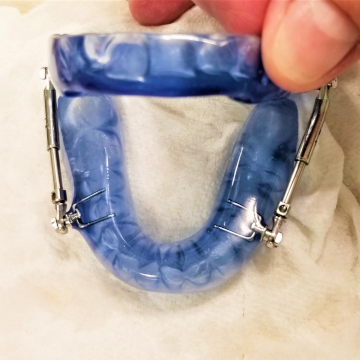 Santa Cruz, Scotts Valley CA
Santa Cruz, Scotts Valley CA
Obstructive sleep apnea is a severe sleep breathing disorder that can affect individuals of any age, gender or body type. Certain factors can raise or lower your risk of sleep apnea, such as weight and whether or not you drink alcohol, but did you know that what medication you take also can play a role? Read on as we explore this topic in greater detail, today on the blog.
What happens when you have sleep apnea?
This sleep breathing disorder occurs when the airway becomes obstructed when someone lays down to sleep. These blockages could be partial or complete, disrupting the flow of air or ceasing breathing altogether. Each of these blockages is known as an apneic event. When the airway becomes obstructed, oxygen levels in the body eventually drop to the point that the brain signals the body to come out of sleep and resume normal breathing. Although someone with sleep apnea usually does not wake up consciously, each apneic event disrupts the sleep cycle. This means that a sleep apnea patient spends less time in the deepest stages of the sleep cycle, which are key to physical and mental restoration. An individual with severe, untreated sleep apnea may experience hundreds of these apneic events each night.
How do medications impact sleep apnea?
Certain prescription medications can increase someone’s susceptibility to sleep apnea, especially if one of the side effects is weight gain.
Five medication types that can aggravate an existing case of sleep apnea or make you more likely to develop the disorder include:
- Antidepressants – Tricyclic antidepressants in particular stimulate the appetite, which lead to increased eating and weight gain. SSRI antidepressants can diminish the amount of time someone spends in REM, or rapid eye movement, which occurs during the deepest stages of sleep.
- Depakote – Also known as valproic acid, this medication is a mood stabilizer that is used to treat seizures and bipolar disorder. It also can be used to treat migraines.
- Steroids – Medical research shows that 70% of individuals who take steroids on a long-term prescription experience weight gain. One of the most frequently prescribed is prednisone, a corticosteroid that is used to treat a wide variety of different ailments and disorders.
- Antihistamines – More than 100 million Americans suffer from allergies, according to the Asthma and Allergy Foundation of America. Many of those individuals take an antihistamine such as Allegra or Zyrtec to manage the symptoms. These medications are available both on a prescription or over the counter but taking them regularly can make you more predisposed to weight gain.
- Insulin: Many individuals with diabetes take insulin to help manage their glucose levels. One of the consequences of insulin use, however, is weight gain. If you are taking insulin for your diabetes, you should consider scheduling a sleep study or airway screening to detect symptoms of sleep apnea.
Treating sleep apnea in Los Gatos, Santa Cruz and Scotts Valley, California
While only a qualified sleep specialist can make an official diagnosis of sleep apnea, Ebrahimian Integrative Dentistry can provide treatment for diagnosed cases of the sleep breathing disorder and can treat the disorder without the need for CPAP. To learn more about how we use oral appliance therapy to treat sleep apnea, schedule a consultation today. Just visit us online or call our office in Scotts Valley at (831) 438-4411.


